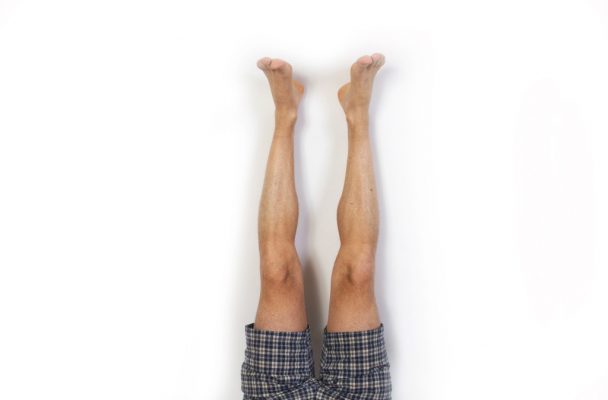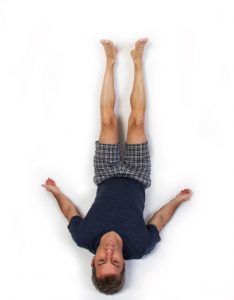Put Your Feet Up – You Deserve It and So Do Your Legs

The health benefits of regularly elevating your legs
In the world of fitness and health, it seems there is a perpetual search for the silver bullet that’ll make us faster, stronger, more ripped, or injury resistant. I’m not much of a believer in the hype or quick fixes, but I am curious by nature, and I think a healthy approach to fitness and living is entering in to it with a sense of exploration.
Exercise, for me, is a conversation with the body and mind. I’m always checking in, especially on long runs – to make sure I’m not doing damage to myself.
One thing I had noticed in more recent years was that my legs would get quite stiff after, say, a 20 km run. Stretching has always been part of my regime, and I more recently added the foam roller and the hip circle (read my post) – to activate the body. Last year, I was really big on soaking in a cold bath for 15 minutes after a long run – hoping this would take away the stiffness in my legs post run. The results were mixed.

This year, I’ve decided to experiment with elevating my legs for 15-20 minutes against the wall after a long run. A few weeks back, I tried it, and my legs felt fresh afterward, with none of the stiffness in the calves and hammies that I normally experience. Was this a fluke or was this a possible cure for my leg stiffness? The following week after another 20km run, I elevated my legs. Again, my legs felt fresh when I got up and got on with my day.
It seemed too good to be true, so I decided to dig a little deeper on the internet.
- First off, I learned elevating your legs doesn’t “clear” lactic acid as is often cited. Your body doesn’t need gravity to do that. But things like lymph and extracellular fluid do pool in the lower extremities and benefit from leg elevation for draining and reducing swelling.
- Elevating your legs after a workout can speed up muscle recovery by making the movement of waste products and replenishing nutrients in-and-out of the muscle cells more efficient.
- BEST PRACTICES. There seems to be a few schools of thought around leg position. One website suggests your thighs should be tilted at less than a 45-degree angle, your knees bent at an angle between 20-30 degrees and the calves tilted between 15-20 degrees, allowing gravity to gently drain blood and fluid back towards your core. Other sources suggest lying on the floor with your butt against the wall, legs straight up resting against the wall. Whatever position you decide on, stay mindful of the body and what it’s doing. If you start feeling discomfort, adjust your position (feet, knees, hips, back, neck…). The practice of elevation can be done one or more times a day for 10-20 minutes.
- The sooner you go into the inverted pose after a workout the better (within 30 minutes). With your veins dilated from working out, the circulation of blood to the rest of the body is far more efficient.
- The inverted pose also allows gravity to gently elongate the leg muscles and aids digestion.
- OTHER BENEFITS: Leg elevation can relieve symptoms of varicose veins and can help prevent DVT (deep vein thrombosis), AKA a blood clot that can travel to the lungs and cause a life-threatening pulmonary embolism.
- Since this position facilitates the flow of blood and oxygen to the brain, it can encourage deep relaxation – a particularly helpful state right before bedtime. Add some deep meditative breathing and you got yourself some next level chill.
All this is to say that elevating the legs 10-20 minutes one or more times a day likely has benefits for many of us (however, there are several serious health conditions (congestive heart failure and peripheral arterial disease among them) that elevation may negatively impact, so consult a doctor, if you’re concerned).
The best part of this practice is that it’s relaxing and it’s free. So give it a try and let me know if you experience any changes in your post-workout recovery!
Leave a Reply
You must be logged in to post a comment.